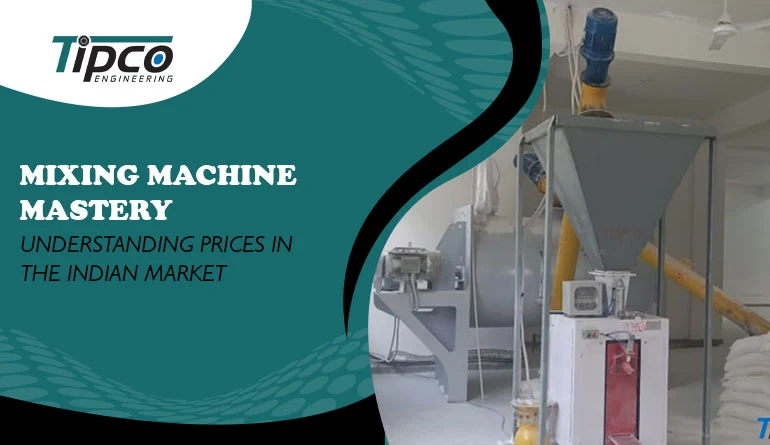Understanding Mixing Machine Prices in The Indian Market
Mixing Machines play a crucial role in various industries, from food processing to pharmaceuticals and manufacturing. As businesses in India continue to grow and diversify, the demand for efficient mixing machines has surged. However, understanding the pricing dynamics in the Indian market for mixing machines can be challenging. In this blog, we will delve into the factors that influence mixing machine prices in India and provide insights to help businesses make informed decisions.
Factors Influencing Mixing Machine Prices:
1. Type of Mixing Machine:
The Indian market offers a diverse range of mixing machines, each designed for specific applications. Prices can vary significantly based on the type of mixing machine, such as ribbon blenders, paddle mixers, or high shear mixers. It's essential to choose a machine that aligns with your industry requirements to ensure optimal performance and value for money.
2. Capacity and Size:
Mixing Machine come in various capacities and sizes to accommodate different production scales. Larger capacity machines tend to have higher prices due to their increased capabilities. Understanding your production needs and selecting an appropriately sized mixing machine is crucial for cost-effectiveness.
3. Material of Construction:
The construction material of the mixing machine is a key factor influencing its price. Machines made from stainless steel or other corrosion-resistant materials are often priced higher than those made from standard materials. The choice of construction material should align with the nature of the materials being mixed and the industry's hygiene standards.
4. Technology and Features:
Advanced technological features can enhance the efficiency and performance of Mixing Machines in India. Modern features such as programmable controls, automation, and digital monitoring systems can contribute to higher prices. Evaluating the necessity of these features for your specific application is essential to avoid overpaying for functionalities that may not be crucial to your operations.
5. Brand Reputation:
Established brands with a reputation for quality and reliability often command higher prices. While opting for a well-known brand can provide assurance of product performance, it's essential to balance brand reputation with your budget constraints. Some lesser-known brands may offer competitive prices without compromising on quality.
6. After-Sales Support and Warranty:
Consideration of after-sales support and warranty terms is vital when evaluating Mixing Machine Prices. Machines with comprehensive warranty coverage and reliable after-sales service may have slightly higher upfront costs but can lead to long-term cost savings through reduced maintenance expenses and downtime.
Conclusion:
Understanding Mixing Machine Prices in India involves a careful analysis of various factors, including machine type, capacity, construction material, technology, brand reputation, and after-sales support. By considering these factors, businesses can make informed decisions that align with their production requirements and budget constraints. Investing in the right mixing machine is crucial for enhancing operational efficiency and achieving long-term success in a competitive market.




Comments
Post a Comment